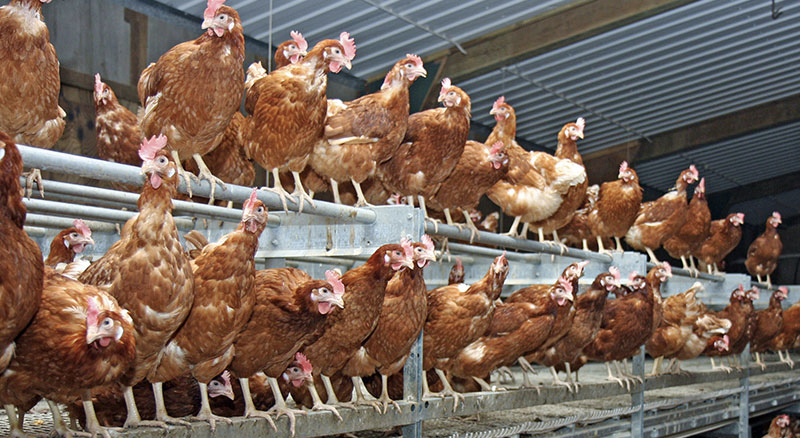
Using antibiotics in farming poses a real threat to public health and must be reduced, according to a new review commissioned by the government.
Countries or areas that use more antibiotics, often have higher rates of resistant bacteria, meaning infections are harder to treat. It is also evident that use of antibiotics in animals is correlated with the development of resistant bacteria, as in human use of antibiotics.
The latest review, entitled Antimicrobials in agriculture and the environment: reducing unnecessary use and waste, recommended a reduction in the use of antibiotics in agriculture.
Infections from animals to humans could potentially happen through consumption of undercooked meat, or via the spread of resistant bacteria into environmental reservoirs.
Humans and animals are often affected by similar, or even the same, pathogens. Therefore it stands to reason that many of the antimicrobials used to treat these infectious diseases are similar.
The relative use in agriculture, without better policies, is likely to grow even more due to the rise of economic growth, wealth, and with these, food consumption of the emerging world; Jim O'Neill, who chaired the review, said the results were staggering.
The risks associated with the high use of antimicrobials are threefold.
Firstly, it presents the risk that drug-resistant strains are passed on through direct contact between humans and animals (notably farmers). Secondly, these drug-resistant strains have the potential to be passed onto humans more generally through the food chain, i.e. when consumers prepare or eat the meat itself.
Finally, there is a further indirect threat to human health as result of animal excretion.
Both resistant bacteria, as well as significant volumes of antibiotics consumed, are then excreted by animals (with most of the active ingredient unmetabolised). This both releases resistant bacteria into the environment as well as causing the environment to be tainted with antibiotics, providing further opportunities for exposure to bacteria and creating additional selective pressure that leads to the development of drug resistance.
"We need to reduce global levels of antibiotic use in agriculture, to an agreed limit for each country, but it should be for individual countries to decide how best to achieve this goal - a global target would make this possible," the review said.
"We believe an ambitious but achievable target for reducing antibiotic use in agriculture is needed, to reduce use over the next 10 years."
"There remain too many knowledge gaps regarding patterns of antimicrobial use in agriculture and release during manufacturing, and what this means for resistance and, ultimately, human health. This needs to change if meaningful progress is to be made."
Estimates of total annual global antibiotic consumption in agriculture vary considerably, due to poor surveillance and data collection in many countries, ranging from around 63,000 tonnes to over 240,000 tonnes.
Why do we use such large quantities of antibiotics in our livestock? These antibiotics are used for different purposes, some to protect or improve the health of the animals, and others to stimulate quicker growth and maximize profits.
Animals in the USA consume more than twice as many medically important antibiotics as humans.
"In light of this information, we believe that there is sufficient evidence showing that the world needs to start curtailing the quantities of antimicrobials used in agriculture now.
"Where gaps in the evidence remain, they should be filled. But given all that we know already, it does not make sense to delay action further: the burden of proof should be for those who oppose curtailing the use of antimicrobials in food production to explain why, not the other way around."
In response to the review, President of the British Veterinary Association (BVA) Sean Wensley said “The use of antibiotics in agriculture is just one piece of the jigsaw when tackling AMR and we need to see increased collaboration between health sectors to ensure positive steps are taken to preserve these essential drugs for future generations, particularly as its accepted that the main driver for AMR globally is the use of antibiotics in human health.
“BVA is opposed to the introduction of arbitrary, non-evidence based target setting; such targets, to reduce antibiotic use, risk restricting vets’ ability to treat disease outbreaks in livestock, which could have serious public health and animal welfare implications. The current EU legislation on vets’ prescribing of antibiotics for all animals, including those intended for production, is robust and we would like to see equivalent legislation rolled out globally.”
